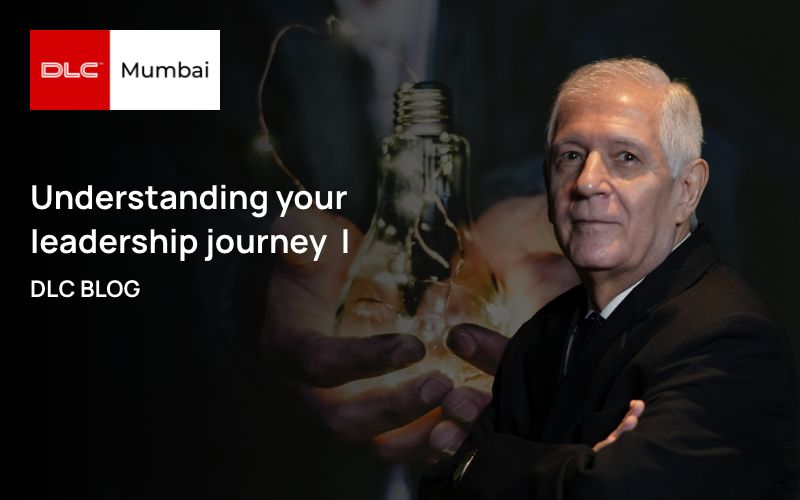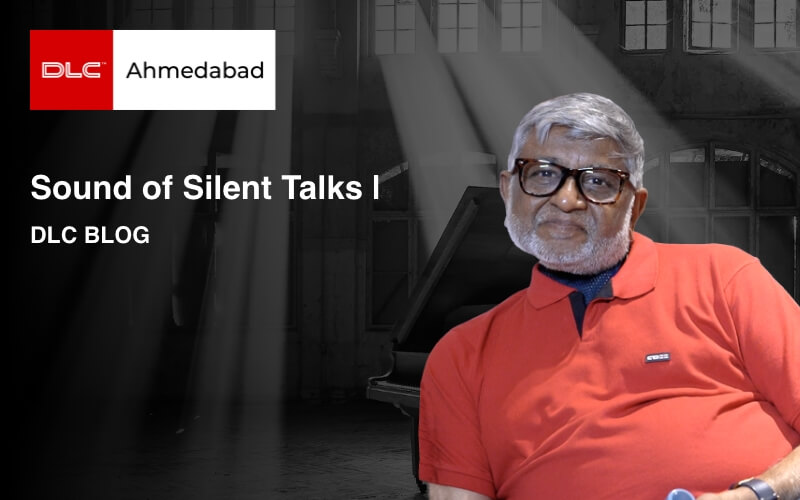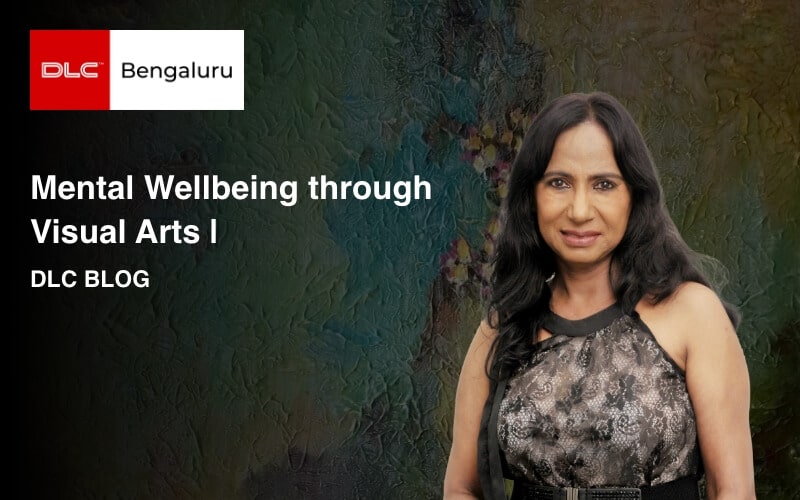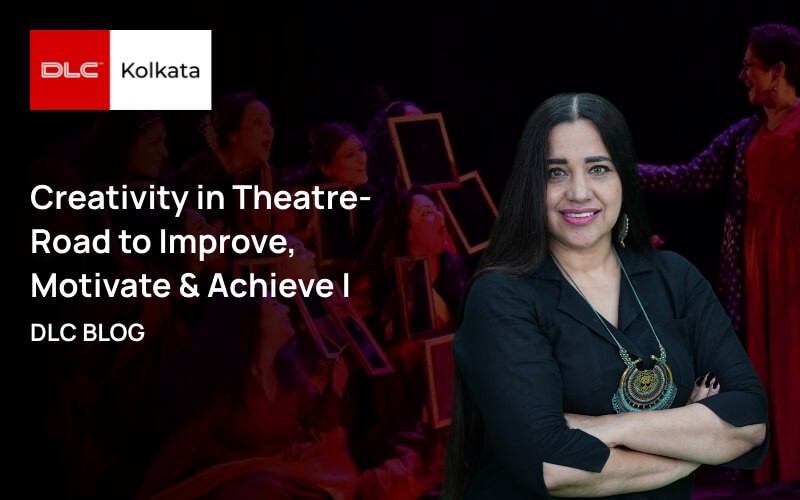
“We must all do theatre, to find out who we are and discover who we could become.” – Augusto Boal Theatre carries in itself a whole world, a life of multitudes to be breathed, experienced, and reflected upon. It embodies all Art forms and brings them to life as a whole – an umbrella under which myriad Art disciplines exist. By interweaving Arts as a lifestyle, assists us to delve deeper into ourselves, instills motivation, and leads towards achieving our highest potential. Theatre is a dynamic discipline that works tremendously towards conscious living. When we perform different roles in a play, just like we would in life, we need to understand the character in depth. Consequentially, it helps us in delving within ourselves, understanding our strengths and weaknesses, and exploring our optimum potential.
 Engaging in Arts sharpens our senses and we develop a heightened sense of observation and empathy towards ourselves, others, and the environment. As an actor/director and facilitator, working in the field of Theatre for the past three decades, I have seen the efficacy that Theatre brings in people’s lives. While training students across the whole spectrum of age and gender, I have realised that they all felt Theatre was their medium of reckoning themselves to become independent, confident, and holistic individuals. Theatre helped them shape their path of career choice, grow as better individuals, achieve creative perspectives of imagining, and discover methods to live a balanced lifestyle. Theatre is a magic wand that enhances creative thinking. The improvisation techniques in Theatre motivate one to think in the most dynamic way using various cross-sector approaches and also encourage one to widen their scope of observing and responding.
In Theatre, while engaging with various Art forms, one frequently takes a flight of fantasy and imagination. Creativity is crucial for innovation and adaptation. Artists, being creative people, have the ability to see multiple solutions and employ original thoughts. The world of Art implores one towards unique responses and multifarious ways of looking at things. Literature and Language are an integral part of Theatre. One is introduced to diverse literature and experiences knowledge gathering of multiple cultures. Through oral narratives and written texts, one is introduced to the intricacies of multitudinous societies. Exposure to the world of Arts embeds tolerance and cultivates the quality of inclusiveness in a person. Learning a language includes not only understanding its context and essence but also grasping its rhythm and musicality. As one has to deliver dialogues clearly and effectively to enact a character, one has to work on the language, which turns out to be a great exercise for ameliorating language proficiency. Clear pronunciations, understanding the expression and connotation of each word add to the subconscious learning of an individual.
Performing in Theatre acts as a memory booster. Techniques of delivering lengthy dialogues, responding according to cues, understanding and keeping a track of the entire play, helps an individual in improving memory. The discipline of practice and live performance strengthens memorizing skills. Gradually, one becomes a person with sharp memory skills that they can use effectively as a ready reckoner and a point of reference in any given situation in life. Theatre stimulates in developing better communication skills among individuals. Being a collective is the principal structure of Theatre. It breathes through the idea of being a unit and a family, which requires sustaining relationships. By way of working as a team, analyzing characters to play and by its structure of being a place to express emotions effectively, one develops the intrainter personal skills of communication and learn to deliver effectively among professional and personal relationships.
Team spirit is the essence and ethos of Theatre. While working in Theatre, one acquires the skill of dealing and existing with individuals from diverse socio-political-cultural-economic backgrounds, having varied psychological and social manifestations. This structure reinforces the idea of working as a team player among individuals, a quality which works as a machinery towards growth.
Theatre cultivates leadership qualities in an individual by encouraging ownership and authority as a robust element. Though it works as a collective, it requires individuals to undertake responsibility and initiative. The extensive gamut of Theatre that includes curation, creation, performance, production, organization, management and execution, instills in one the Art of detailing. An artist knows well how to look into various aspects of any given project. Theatre is ephemeral and live. Hence, it requires maximal alertness and prompt decision making which are the hallmark of a capable leader. ‘The show must go on’- achieving the collective goal under all circumstances is what defines the life in Theatre. The healing power of Theatre or Arts, in general, is magnanimous. They assist us in visiting the corners of our being that we are unable to connect with in any other realm of life.
Theatre is therapeutic and has extreme potential of rejuvenating lives mentally and physically. Its philanthropy lies in understanding emotions, expressions and people-to-people connection. Through interaction, practice and creative engagement, it can act as a pathway to recovery for all. Choosing Arts as a lifestyle creates a healthy environment that revolves around personal achievements and successful relationships, bringing gratification in life
Engaging in Arts sharpens our senses and we develop a heightened sense of observation and empathy towards ourselves, others, and the environment. As an actor/director and facilitator, working in the field of Theatre for the past three decades, I have seen the efficacy that Theatre brings in people’s lives. While training students across the whole spectrum of age and gender, I have realised that they all felt Theatre was their medium of reckoning themselves to become independent, confident, and holistic individuals. Theatre helped them shape their path of career choice, grow as better individuals, achieve creative perspectives of imagining, and discover methods to live a balanced lifestyle. Theatre is a magic wand that enhances creative thinking. The improvisation techniques in Theatre motivate one to think in the most dynamic way using various cross-sector approaches and also encourage one to widen their scope of observing and responding.
In Theatre, while engaging with various Art forms, one frequently takes a flight of fantasy and imagination. Creativity is crucial for innovation and adaptation. Artists, being creative people, have the ability to see multiple solutions and employ original thoughts. The world of Art implores one towards unique responses and multifarious ways of looking at things. Literature and Language are an integral part of Theatre. One is introduced to diverse literature and experiences knowledge gathering of multiple cultures. Through oral narratives and written texts, one is introduced to the intricacies of multitudinous societies. Exposure to the world of Arts embeds tolerance and cultivates the quality of inclusiveness in a person. Learning a language includes not only understanding its context and essence but also grasping its rhythm and musicality. As one has to deliver dialogues clearly and effectively to enact a character, one has to work on the language, which turns out to be a great exercise for ameliorating language proficiency. Clear pronunciations, understanding the expression and connotation of each word add to the subconscious learning of an individual.
Performing in Theatre acts as a memory booster. Techniques of delivering lengthy dialogues, responding according to cues, understanding and keeping a track of the entire play, helps an individual in improving memory. The discipline of practice and live performance strengthens memorizing skills. Gradually, one becomes a person with sharp memory skills that they can use effectively as a ready reckoner and a point of reference in any given situation in life. Theatre stimulates in developing better communication skills among individuals. Being a collective is the principal structure of Theatre. It breathes through the idea of being a unit and a family, which requires sustaining relationships. By way of working as a team, analyzing characters to play and by its structure of being a place to express emotions effectively, one develops the intrainter personal skills of communication and learn to deliver effectively among professional and personal relationships.
Team spirit is the essence and ethos of Theatre. While working in Theatre, one acquires the skill of dealing and existing with individuals from diverse socio-political-cultural-economic backgrounds, having varied psychological and social manifestations. This structure reinforces the idea of working as a team player among individuals, a quality which works as a machinery towards growth.
Theatre cultivates leadership qualities in an individual by encouraging ownership and authority as a robust element. Though it works as a collective, it requires individuals to undertake responsibility and initiative. The extensive gamut of Theatre that includes curation, creation, performance, production, organization, management and execution, instills in one the Art of detailing. An artist knows well how to look into various aspects of any given project. Theatre is ephemeral and live. Hence, it requires maximal alertness and prompt decision making which are the hallmark of a capable leader. ‘The show must go on’- achieving the collective goal under all circumstances is what defines the life in Theatre. The healing power of Theatre or Arts, in general, is magnanimous. They assist us in visiting the corners of our being that we are unable to connect with in any other realm of life.
Theatre is therapeutic and has extreme potential of rejuvenating lives mentally and physically. Its philanthropy lies in understanding emotions, expressions and people-to-people connection. Through interaction, practice and creative engagement, it can act as a pathway to recovery for all. Choosing Arts as a lifestyle creates a healthy environment that revolves around personal achievements and successful relationships, bringing gratification in life
 Engaging in Arts sharpens our senses and we develop a heightened sense of observation and empathy towards ourselves, others, and the environment. As an actor/director and facilitator, working in the field of Theatre for the past three decades, I have seen the efficacy that Theatre brings in people’s lives. While training students across the whole spectrum of age and gender, I have realised that they all felt Theatre was their medium of reckoning themselves to become independent, confident, and holistic individuals. Theatre helped them shape their path of career choice, grow as better individuals, achieve creative perspectives of imagining, and discover methods to live a balanced lifestyle. Theatre is a magic wand that enhances creative thinking. The improvisation techniques in Theatre motivate one to think in the most dynamic way using various cross-sector approaches and also encourage one to widen their scope of observing and responding.
In Theatre, while engaging with various Art forms, one frequently takes a flight of fantasy and imagination. Creativity is crucial for innovation and adaptation. Artists, being creative people, have the ability to see multiple solutions and employ original thoughts. The world of Art implores one towards unique responses and multifarious ways of looking at things. Literature and Language are an integral part of Theatre. One is introduced to diverse literature and experiences knowledge gathering of multiple cultures. Through oral narratives and written texts, one is introduced to the intricacies of multitudinous societies. Exposure to the world of Arts embeds tolerance and cultivates the quality of inclusiveness in a person. Learning a language includes not only understanding its context and essence but also grasping its rhythm and musicality. As one has to deliver dialogues clearly and effectively to enact a character, one has to work on the language, which turns out to be a great exercise for ameliorating language proficiency. Clear pronunciations, understanding the expression and connotation of each word add to the subconscious learning of an individual.
Performing in Theatre acts as a memory booster. Techniques of delivering lengthy dialogues, responding according to cues, understanding and keeping a track of the entire play, helps an individual in improving memory. The discipline of practice and live performance strengthens memorizing skills. Gradually, one becomes a person with sharp memory skills that they can use effectively as a ready reckoner and a point of reference in any given situation in life. Theatre stimulates in developing better communication skills among individuals. Being a collective is the principal structure of Theatre. It breathes through the idea of being a unit and a family, which requires sustaining relationships. By way of working as a team, analyzing characters to play and by its structure of being a place to express emotions effectively, one develops the intrainter personal skills of communication and learn to deliver effectively among professional and personal relationships.
Team spirit is the essence and ethos of Theatre. While working in Theatre, one acquires the skill of dealing and existing with individuals from diverse socio-political-cultural-economic backgrounds, having varied psychological and social manifestations. This structure reinforces the idea of working as a team player among individuals, a quality which works as a machinery towards growth.
Theatre cultivates leadership qualities in an individual by encouraging ownership and authority as a robust element. Though it works as a collective, it requires individuals to undertake responsibility and initiative. The extensive gamut of Theatre that includes curation, creation, performance, production, organization, management and execution, instills in one the Art of detailing. An artist knows well how to look into various aspects of any given project. Theatre is ephemeral and live. Hence, it requires maximal alertness and prompt decision making which are the hallmark of a capable leader. ‘The show must go on’- achieving the collective goal under all circumstances is what defines the life in Theatre. The healing power of Theatre or Arts, in general, is magnanimous. They assist us in visiting the corners of our being that we are unable to connect with in any other realm of life.
Theatre is therapeutic and has extreme potential of rejuvenating lives mentally and physically. Its philanthropy lies in understanding emotions, expressions and people-to-people connection. Through interaction, practice and creative engagement, it can act as a pathway to recovery for all. Choosing Arts as a lifestyle creates a healthy environment that revolves around personal achievements and successful relationships, bringing gratification in life
Engaging in Arts sharpens our senses and we develop a heightened sense of observation and empathy towards ourselves, others, and the environment. As an actor/director and facilitator, working in the field of Theatre for the past three decades, I have seen the efficacy that Theatre brings in people’s lives. While training students across the whole spectrum of age and gender, I have realised that they all felt Theatre was their medium of reckoning themselves to become independent, confident, and holistic individuals. Theatre helped them shape their path of career choice, grow as better individuals, achieve creative perspectives of imagining, and discover methods to live a balanced lifestyle. Theatre is a magic wand that enhances creative thinking. The improvisation techniques in Theatre motivate one to think in the most dynamic way using various cross-sector approaches and also encourage one to widen their scope of observing and responding.
In Theatre, while engaging with various Art forms, one frequently takes a flight of fantasy and imagination. Creativity is crucial for innovation and adaptation. Artists, being creative people, have the ability to see multiple solutions and employ original thoughts. The world of Art implores one towards unique responses and multifarious ways of looking at things. Literature and Language are an integral part of Theatre. One is introduced to diverse literature and experiences knowledge gathering of multiple cultures. Through oral narratives and written texts, one is introduced to the intricacies of multitudinous societies. Exposure to the world of Arts embeds tolerance and cultivates the quality of inclusiveness in a person. Learning a language includes not only understanding its context and essence but also grasping its rhythm and musicality. As one has to deliver dialogues clearly and effectively to enact a character, one has to work on the language, which turns out to be a great exercise for ameliorating language proficiency. Clear pronunciations, understanding the expression and connotation of each word add to the subconscious learning of an individual.
Performing in Theatre acts as a memory booster. Techniques of delivering lengthy dialogues, responding according to cues, understanding and keeping a track of the entire play, helps an individual in improving memory. The discipline of practice and live performance strengthens memorizing skills. Gradually, one becomes a person with sharp memory skills that they can use effectively as a ready reckoner and a point of reference in any given situation in life. Theatre stimulates in developing better communication skills among individuals. Being a collective is the principal structure of Theatre. It breathes through the idea of being a unit and a family, which requires sustaining relationships. By way of working as a team, analyzing characters to play and by its structure of being a place to express emotions effectively, one develops the intrainter personal skills of communication and learn to deliver effectively among professional and personal relationships.
Team spirit is the essence and ethos of Theatre. While working in Theatre, one acquires the skill of dealing and existing with individuals from diverse socio-political-cultural-economic backgrounds, having varied psychological and social manifestations. This structure reinforces the idea of working as a team player among individuals, a quality which works as a machinery towards growth.
Theatre cultivates leadership qualities in an individual by encouraging ownership and authority as a robust element. Though it works as a collective, it requires individuals to undertake responsibility and initiative. The extensive gamut of Theatre that includes curation, creation, performance, production, organization, management and execution, instills in one the Art of detailing. An artist knows well how to look into various aspects of any given project. Theatre is ephemeral and live. Hence, it requires maximal alertness and prompt decision making which are the hallmark of a capable leader. ‘The show must go on’- achieving the collective goal under all circumstances is what defines the life in Theatre. The healing power of Theatre or Arts, in general, is magnanimous. They assist us in visiting the corners of our being that we are unable to connect with in any other realm of life.
Theatre is therapeutic and has extreme potential of rejuvenating lives mentally and physically. Its philanthropy lies in understanding emotions, expressions and people-to-people connection. Through interaction, practice and creative engagement, it can act as a pathway to recovery for all. Choosing Arts as a lifestyle creates a healthy environment that revolves around personal achievements and successful relationships, bringing gratification in life Ramanjit is an International Award-winning Theatre and Film Actor and Director. She is the Founder Director of The Creative Arts, the prestigious Arts Academy in Kolkata. Ramanjit is a graduate in Music, Dance, Fine Arts and Literature, and a Gold Medalist in master’s in music (Inst.). Apart from training in Theatre under her guru Neelam Mansingh, she has also trained at UK, France and Italy.
Want to connect ?





































































